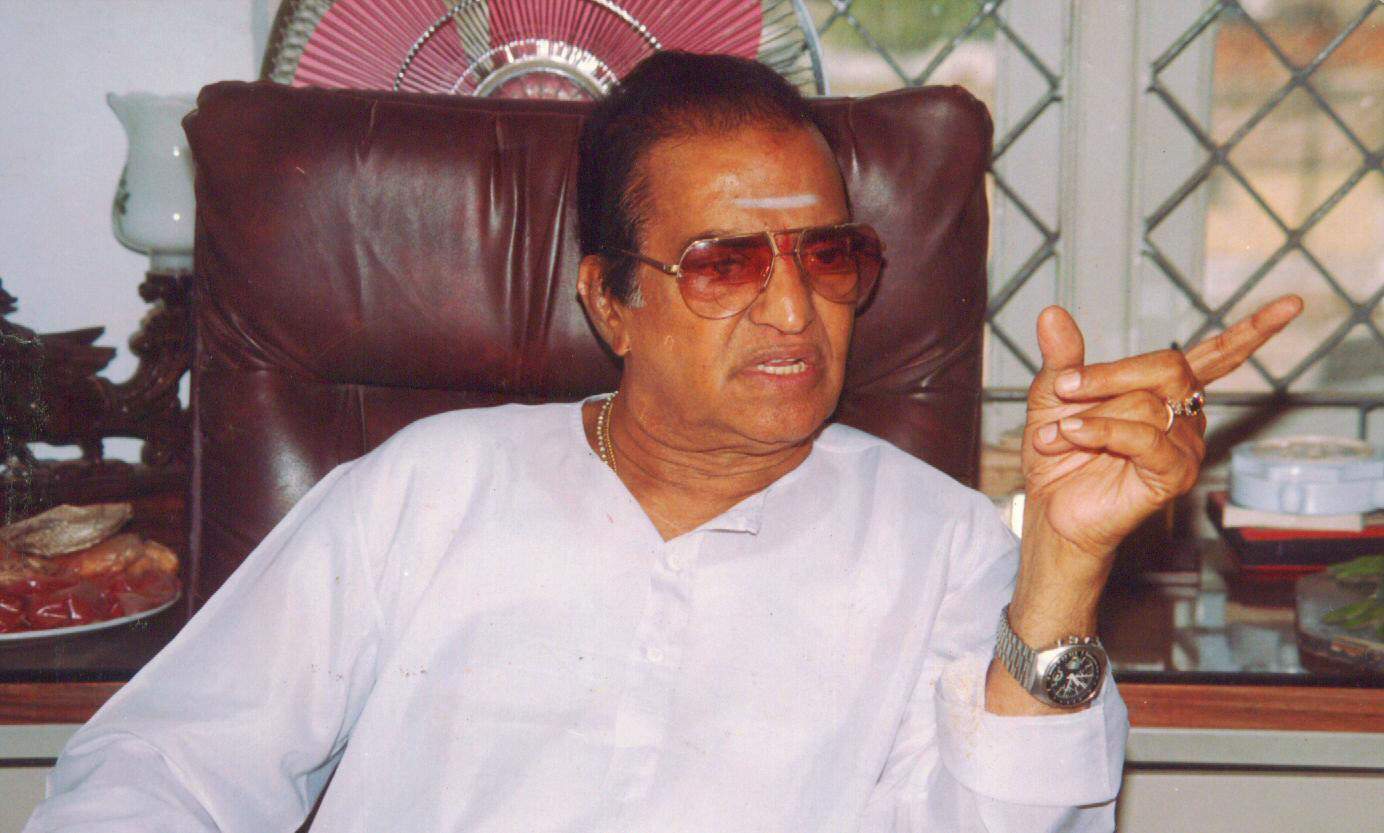
New Ram Gopal Varma film to show the 'tormented' side of NTR

With the Telangana High Court giving green signal for the release of Ram Gopal Varma’s Lakshmi’s NTR, the stage is now set for the Andhra voters to be treated to two competing narratives on the life and times of late N T Rama Rao, the Telugu matinee idol who strode the tinsel world and politics like a colossus.
The ruling Telugu Desam Party, headed by Chief Minister N Chandrababu Naidu, was clearly unnerved when the controversial filmmaker released the movie’s trailer online last month. Protests and threats followed soon after. This is because Lakshmi’s NTR presents the story of the TDP founder and former Andhra Pradesh Chief Minister through the perspective of his second wife N Lakshmi Parvathi who is a persona non grata for the present TDP dispensation.
The film focuses on the final stages of NTR’s life when he was tormented by the rebellion within his party led by his son-in-law Chandrababu Naidu. It is a hard-hitting take on the political drama surrounding NTR’s dethronement and portrays Naidu in poor light.
A petition was filed in the High Court in Hyderabad, seeking a stay on the release of the movie till the completion of elections. The court, however, dismissed the PIL and ruled that artistic freedom of the filmmaker should not be curbed. On fears that the movie could trigger law and order problems, the court said that the state machinery was capable of handling any situation.
“The petitioner cannot make the high court a boardroom to adjudicate a person’s opinion. If there were any instances of hatred or law and order problem after the release, the government and police are well equipped to deal with such type of instances,” the court observed.
The biopic is now all set to hit the theatres on March 28.
The TDP had earlier moved the Election Commission, seeking a ban on the movie on the ground that it was provocative and derogatory.
Official biopic
Already, two parts of a biopic – ‘NTR-Kathanayakudu’ and ‘NTR-Mahanayakudu’, produced by NTR’s son and TDP legislator N Balakrishna, is running in theaters across the state. However, the films, seen as “official” versions of NTR’s life, have been receiving poor reviews and doing average business at the box office.
It is widely seen as a propagandist venture by the TDP to strike an emotional chord with the voters ahead of the simultaneous elections to the Lok Sabha and Assembly on April 11. Balakrishna, himself an actor of considerable repute, with over 100 films under his belt, dons the role of his illustrious father while Bollywood actor Vidya Balan plays the role of NTR’s wife Basava Tharakam.
RGV’s court controversy
Ever since RGV announced his plans to make a biopic on NTR, the project has been mired in a controversy with the TDP leaders threatening to hit the streets if it portrayed Chandrababu Naidu in poor light.
Denying the allegation, the maverick producer-director maintained that his movie focused on some true incidents relating to NTR during his last days. The movie stars Rajsekhar Aningi as the main protagonist and Yagna Shetty as Lakshmi Parvathi.
Undeterred by the criticism from the ruling party functionaries, he has been promoting his film on social media through memes and troll videos. The movie’s theme song has touched the raw nerves of the TDP supporters as it talks about “betrayal, back-stabbing and conspiracies”, a reference to the tumultuous turn of events in August, 1995 when Naidu led a revolt against his father-in-law and toppled him from power.
Enduring legacy
More than two decades after his death, NTR’s legacy still has political relevance and his ideals are often invoked by the parties in the film-crazy Andhra Pradesh where tinsel glamour and politics are inexorably linked to each other.
NTR, who founded the TDP in 1982 on the plank of “Telugu pride”, ran the party with an iron grip. But, following his dethronement in a midnight political coup, he was crest-fallen and heart-broken. He died in January, 1996.
A biopic on a towering personality like NTR could be a tricky affair because his twilight years were marked by tumult and the choices he made during his political career are open to multiple interpretations. Like any regional party leader, he ran a highly personalised style of politics and was criticised for being authoritarian and faced several setbacks in his tumultuous political career. But he is credited even today for bringing an identity to Telugus.

